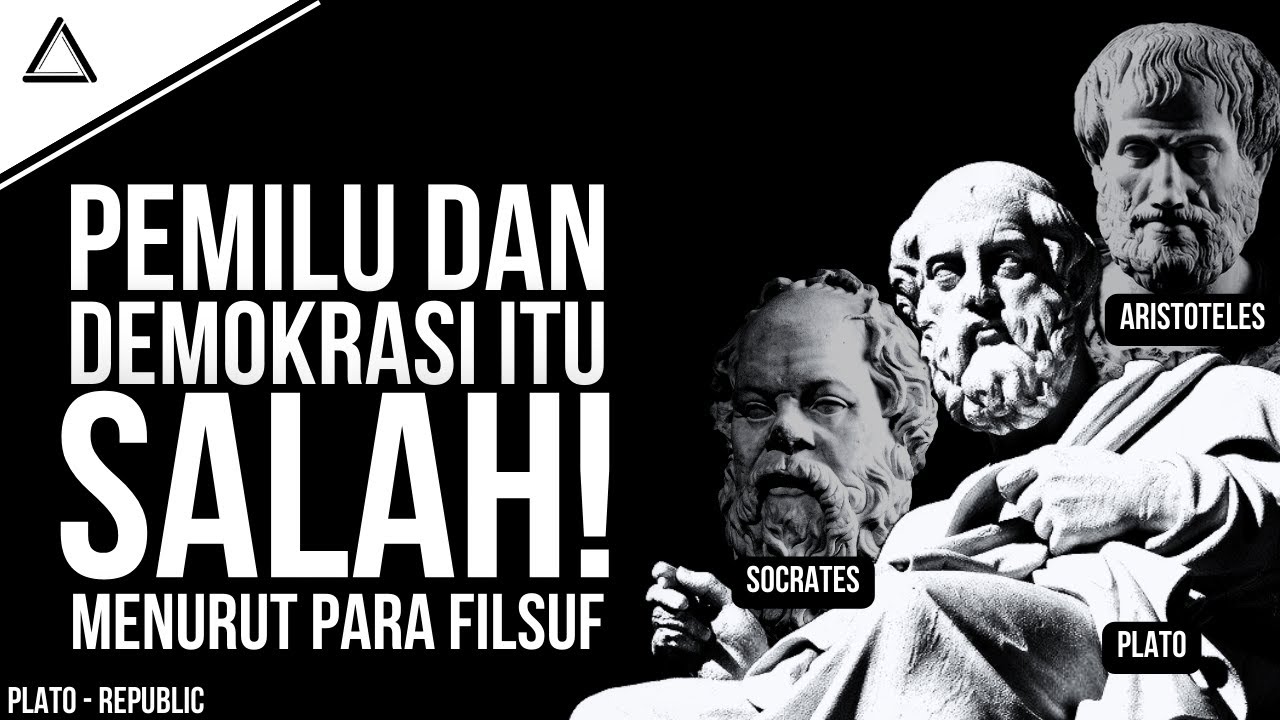Die Attische Demokratie Zusammenfassung
Summary
TLDRThis video script delves into the Athenian democracy, recognized as the first democratic state form and a significant inspiration for modern freedom movements. It contrasts the ancient system with contemporary democracy, highlighting key differences: exclusion of slaves, women, and non-citizens from political rights; the absence of written laws, relying on the populace's sense of justice; direct democracy with decisions made by the assembly, not representatives; the lack of separation of powers, leading to potential irresponsible decisions; and the de facto concentration of power among a wealthy, educated elite.
Takeaways
- 🏛️ The Attic Democracy was the first democratic form of government, serving as a significant model for modern freedom movements.
- 🚫 Exclusion of certain groups: Only Athenian full citizens had political rights, excluding slaves, women, and metics (residents from other regions).
- 🏢 Practical limitations: The rural population had difficulty participating in the assembly due to the need to manage their own affairs and the inconvenience of traveling to the city.
- ❌ No written laws: Legal judgments were based on the sense of justice of the people, which was arbitrary and lacked a formal legal code.
- 🗳️ Direct democracy: Decisions were made directly by the citizens' assembly through voting, rather than through political representatives.
- ❎ No separation of powers: Unlike modern democracies, Athens did not have independent institutions to prevent unjust and irresponsible decisions.
- 💡 Power de facto in few hands: Despite democratic principles, a small group with wealth, education, and self-confidence held significant political influence.
- 🎩 Aristocratic influence: Prominent politicians like Cleisthenes or Pericles were often from the nobility.
- 📜 Absence of a written legal code led to reliance on oral tradition and the subjective interpretation of laws.
- 🌐 Direct democracy and lack of separation of powers could result in hasty and unaccountable decisions made by the masses.
- 🔄 The script humorously concludes with a playful invitation to 'see you again and dig in', suggesting a continuation of the discussion.
Q & A
What is the significance of the Attic Democracy in history?
-The Attic Democracy was the first democratic form of government and served as a significant model for modern freedom movements in the 18th and 19th centuries.
How does the concept of democracy in the Attic Democracy differ from today's understanding?
-In the Attic Democracy, not everyone had political rights, unlike today's more inclusive democratic systems.
Which groups were excluded from political participation in the Attic Democracy?
-Slaves, women, metoeci (resident aliens), and the rural population were excluded from political participation in the Attic Democracy.
What was the legal system like in the Attic Democracy?
-There were no written laws; the legal system was based on the legal sentiment of the people, which was quite arbitrary.
How was decision-making carried out in the Attic Democracy?
-Decision-making was done through direct democracy, with the Ecclesia (citizens' assembly) making decisions and even overturning court rulings.
What is the role of the Ecclesia in the Attic Democracy?
-The Ecclesia was the principal assembly of the democracy where citizens gathered to make decisions on legislation and executive bills directly.
Why was there no separation of powers in the Attic Democracy?
-The concept of separation of powers, which originated in the 18th century, was not present in the Attic Democracy, leading to the concentration of power in the hands of the Ecclesia.
What were the implications of the lack of separation of powers in the Attic Democracy?
-The absence of separation of powers could lead to unwise and irresponsible decisions being made by the masses without the checks and balances provided by independent institutions.
Who effectively held power in the Attic Democracy despite the democratic principles?
-De facto power was held by a small group of individuals with significant wealth, education, and self-confidence, who could exert considerable political influence.
What was the social status of prominent politicians in the Attic Democracy?
-Notable politicians such as Cleisthenes or Pericles were often from the aristocracy, highlighting the de facto power held by a select few despite the democratic framework.
What are the key takeaways from the comparison between the Attic Democracy and modern democratic systems?
-The key takeaways include the exclusion of certain groups from political rights, the absence of written laws, direct democracy, no separation of powers, and the concentration of power among a few influential individuals.
Outlines

This section is available to paid users only. Please upgrade to access this part.
Upgrade NowMindmap

This section is available to paid users only. Please upgrade to access this part.
Upgrade NowKeywords

This section is available to paid users only. Please upgrade to access this part.
Upgrade NowHighlights

This section is available to paid users only. Please upgrade to access this part.
Upgrade NowTranscripts

This section is available to paid users only. Please upgrade to access this part.
Upgrade NowBrowse More Related Video

La démocratie à Athènes (mise en place, fonctionnement et limites)

Sejarah Dan Kritik Demokrasi Dan Pemilu Menurut Socrates, Plato Dan Aristoteles

Athenian Democracy | Political Philosophy

HISTÓRIA PARA PM-AL (2021) #02 | Grécia e Roma - Prof. Diedson Alves

Den greske antikken - 2/2 - Athen og Sparta

Democracia Militante. quando pode haver restrições à liberdade de expressão
5.0 / 5 (0 votes)